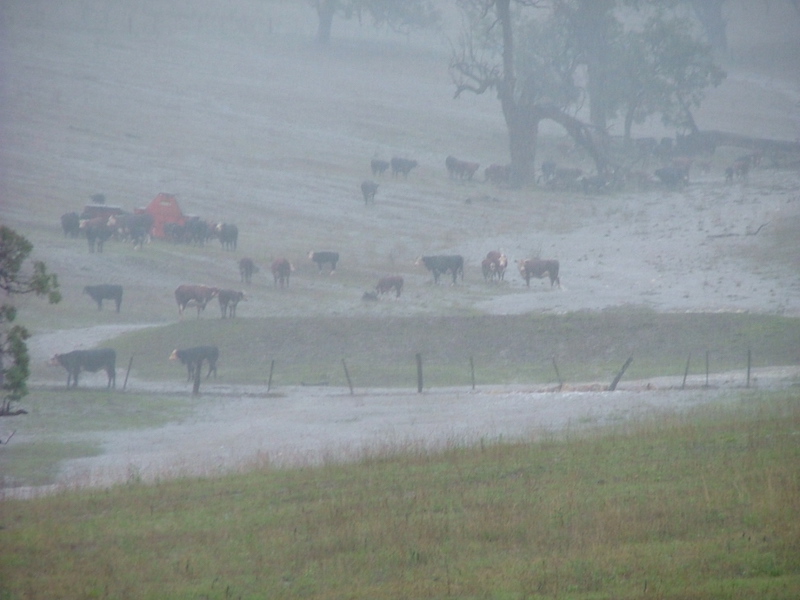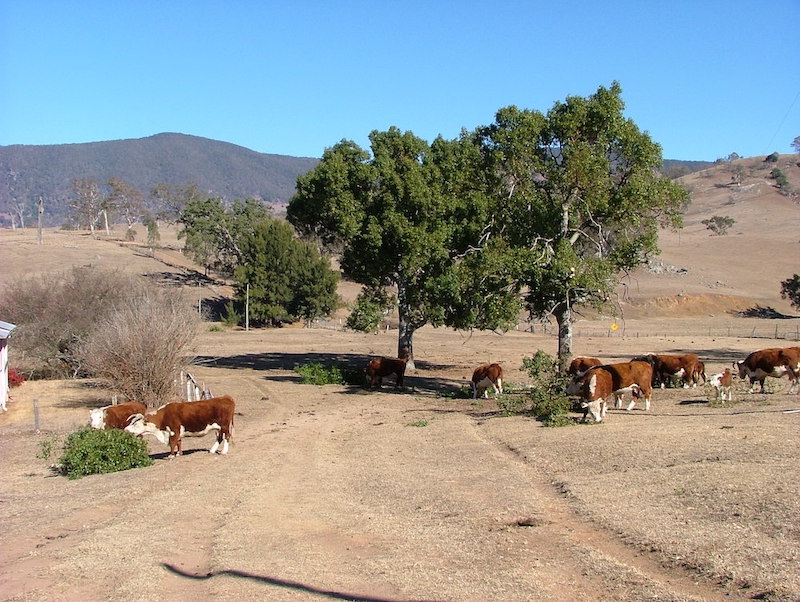Many Australian farmers, from Cape York to the Kimberleys, Margaret River to King Island and through the entire inland, have very substantial mortgage-secured bank debts. Part of their profit, to a greater or lesser extent, flows into the big bank coffers, like rainfall flows into the Darling, Cooper and Fitzroy. These debts may have in part been caused by fire, flood or drought. As a farmer, it’s important to learn how to protect your farm against foreclosure.
At present there is a lot of free government funded support for farmers affected by adverse weather events. But the Government is massively in debt which means much of our taxes is going to the moneylenders in interest, instead of providing essential services. That free farm support may not be enough for all farmers to get back on their feet.
A mortgage debt is like a loaded gun. It is all okay until someone pulls the trigger. So put the safety catch on! Both Kidman and the Duracks faced that loaded gun a few times and survived. Many farmers don’t have to find themselves in this position if they take the necessary steps to protect their farm against foreclosure.
Do not hesitate to contact GBAC to confidentially discuss your situation and how we can help protect your farm against foreclosure.

At present there is a lot of free government funded support for farmers affected by adverse weather events. But the Government is massively in debt which means much of our taxes is going to the moneylenders in interest, instead of providing essential services. That free farm support may not be enough for all farmers to get back on their feet.
A mortgage debt is like a loaded gun. It is all okay until someone pulls the trigger. So put the safety catch on! Both Kidman and the Duracks faced that loaded gun a few times and survived. Many farmers don’t have to find themselves in this position if they take the necessary steps to protect their farm against foreclosure.
Here are 8 of the many ways that GBAC helps farmers to protect their farm against foreclosure:
- The easiest and most neglected. Maintain close and constant contact with the bank. Give the banker a call once a month to say G’day and let them know about something good that is happening on your property. The better they know you and your operation the more sympathetic they will be when you need a favour to get the debt under control.
- When your annual or quarterly financial statements show good results, don’t just send them in via the accountant. Give the bank a call. Thank them for their assistance with the loan facilities and tell them about the profit boost.
- Get your accountant to contact GBAC and work with us to provide a “Management” set of figures that correctly show your profitability instead of the mutilated financial mess that is required for your tax return.
- Open bank accounts with at least two major banks and put sale proceeds from stock, grain or whatever, into different banks. The closure of regional banks is a pain in the neck in some ways, but it allows you to deal with banks a long way from home. Banks jealously guard their paying customers and resent them using other banks, so best not to tell them you have another bank account. Always only deposit external receipts into those accounts. Don’t transfer money from one to the other or one of them will wonder why you are dealing with their competition and may ask you to stop or they will call in the mortgage. Having funds in two banks makes a big difference the day your lending bank seizes your big annual wool, grain or livestock sale cheque.
- Maintain an active loan repayment record showing due dates, planned balances after each payment, dates paid and actual balances after each payment. Do everything in your power to keep up to date with payments. Strive to get a year ahead and stay that way. It gives you some “fat” to call on if you have structured your loan contract the right way. The best time to call GBAC is before you borrow, not afterwards, because then you hold all the aces.
- If loan repayments go into arrears only do such maintenance on paddocks, sheds, yards and fences as is absolutely necessary for operational safety and profit. Don’t dress the place up so that it looks good to the neighbours, for that just encourages the bank to put it up for an easy sale. The worse it looks and the more noxious weeds it hosts, the less appealing it will be for forced sale. That also allows you to channel money into your loan.
- Make loan repayment on time your number one farm priority until the debt is cleared. That is the best safety catch of all for that loaded gun pointing right at every borrower.
- Check that you have adequate insurance and find out exactly what it covers. Many insurance companies make money by collecting premiums and not paying claims. If you have a dispute over insurance give GBAC a call, because negotiating with an insurance company is not all that much different to negotiating with a bank or with government and at GBAC we do them all.
Do not hesitate to contact GBAC to confidentially discuss your situation and how we can help protect your farm against foreclosure.


